Securing the Future: How Life Care Plans Shape TBI Personal Injury Compensation
In traumatic brain injury (TBI) personal injury cases, one of the most critical components in demonstrating long-term damages is the life care plan. TBIs often involve lasting cognitive, physical, and emotional impairments that require extensive treatment well beyond the initial recovery phase. A life care plan provides a comprehensive, evidence-based roadmap of the injured person’s future needs, helping ensure that any settlement or verdict accurately reflects the lifetime impact of the injury.
A life care plan is typically developed by a certified life care planner—often a nurse, rehabilitation specialist, or medical professional with advanced training in long-term disability assessment. The process begins with an in-depth review of medical records, diagnostic images, neuropsychological evaluations, and treating physician reports. The planner also conducts interviews with the injured individual and their family, focusing on functional limitations, daily challenges, and the progression of symptoms. In TBI cases, where impairments may include memory loss, difficulty concentrating, mood disorders, chronic headaches, reduced mobility, or sensory deficits, this individualized approach is especially important.
The plan outlines all foreseeable medical and non-medical needs associated with the TBI. This typically includes ongoing medical care, neurological and psychological therapy, physical and occupational rehabilitation, medications, assistive devices, home modifications, attendant or nursing care, vocational rehabilitation, and transportation assistance. Each category includes projected costs based on current market rates and anticipated future inflation. By quantifying these expenses, the life care plan establishes a financial framework that demonstrates the true economic burden of the injury over the individual’s lifetime.
For attorneys, the life care plan is an invaluable tool for building a persuasive damages narrative. Insurance companies often attempt to minimize future care needs by arguing that symptoms will resolve or that certain treatments are unnecessary. A well-supported life care plan counters these arguments with clinical data and professional judgment. It also provides a clear, organized presentation of damages that can strengthen settlement negotiations or serve as compelling evidence at trial. Jurors who may not fully grasp the long-term implications of a TBI can more easily understand the scope of the injury when they see detailed projections of care needs spanning decades.
Life care plans also help anticipate complications that may arise from the TBI. Individuals with moderate to severe brain injuries may be at higher risk for early-onset dementia, seizure disorders, or chronic pain conditions. By addressing these risks proactively, the plan helps ensure that the injured person is not left without resources if their condition worsens. Additionally, life care plans help families plan practically for the future, offering clarity about the types of support and adaptations that may be required.
Ultimately, a life care plan serves as both a medical and legal cornerstone in TBI cases. It reflects the reality that brain injuries are rarely short-term events and that their consequences can reshape every aspect of a person’s life. By providing a structured, evidence-based projection of future needs, life care plans play a vital role in securing fair and comprehensive compensation for individuals living with the long-term effects of traumatic brain injuries.
Disclaimer: This article is for informational purposes only and is not legal advice.
Contribute to the TBI Times





